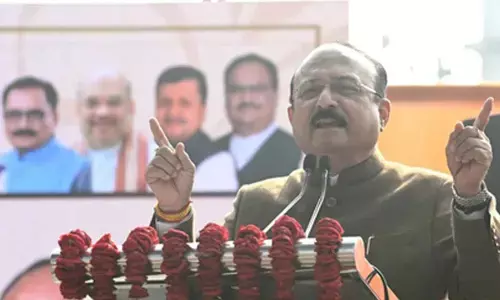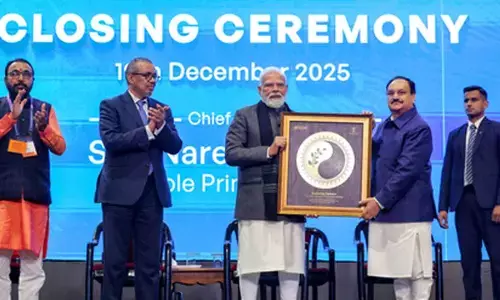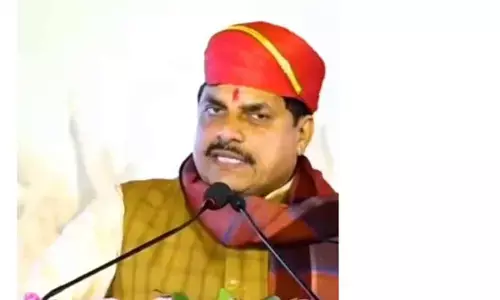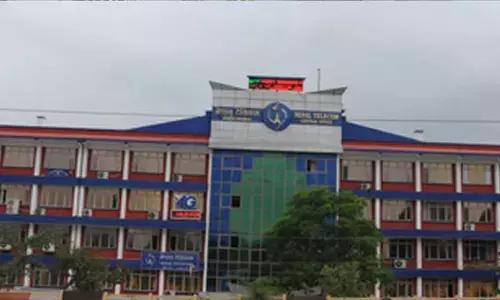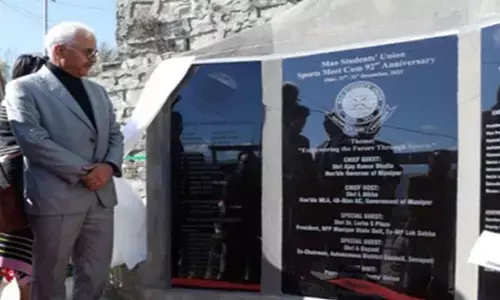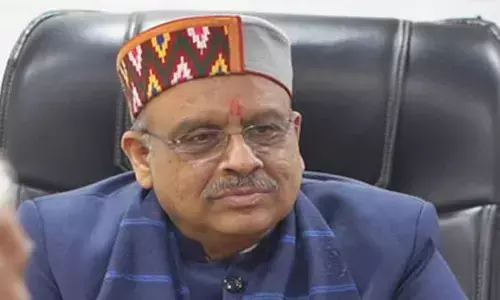Muslim quota can hit judicial roadblocks
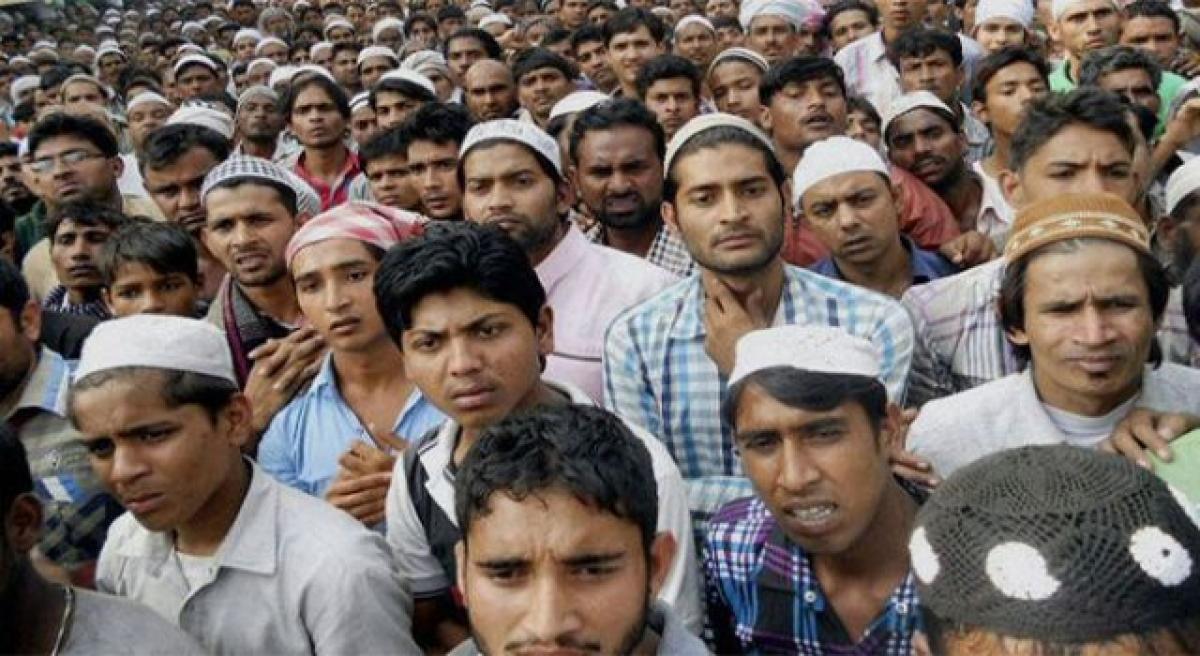
The expert committees constituted by Telangana government on reservations for Muslims and tribals have recently submitted their reports to Chief Minister K Chandra Shekhar Rao. The reports suggest that the state government mulls the proposal to provide reservation in proportion to their respective share in state population.
The expert committees constituted by Telangana government on reservations for Muslims and tribals have recently submitted their reports to Chief Minister K Chandra Shekhar Rao. The reports suggest that the state government mulls the proposal to provide reservation in proportion to their respective share in state population.
There are over 12 per cent Muslims in Telangana. Tribal’s account for nearly 10 per cent of state’s population. The reservations for tribals is constitutionally sanctioned where as reservations for Muslims as a whole is constitutionally impermissible. However, backward sections among Muslims should be duly identified to extend reservations for them.
The recent moves of Telangana government have hit legal road blocks with courts quashing government’s orders. More recently, High Court at Hyderabad quashed the appointment of vice chancellors. The single judge bench of the same court has set aside the GO 123. The government, however, got some relief from the division bench of the court.
Thus is the imperative to examine the possible legal hurdles to state government’s new reservation policy. The reservations jurisprudence provides clear signals of possible road blocks at least in the case of quotas for Muslims.
Infact, India has seen repeated and protracted conflict between courts and the legislature or governments on this issue.It is true that Muslims lag behind even some of the OBCs in several socio economic indices. However, states, Vinay Sitapati, in a chapter on reservations in The Oxford Handbook of The Indian Constitution, “Reservations based solely on religion have faced judicial resistance.
Reservations already extend to some members of non-Hindu religions. For instance, several State governments classify some Muslim sub-groups as ‘backward castes ‘and as such eligible for reservations the argument being that caste hierarchies extend beyond Hinduism to other religions in India .
The courts have generally upheld the principle of OBC sub-quotas for some ‘backward’ Muslim groups … More controversial are quotas solely based on religion”. Therefore any move the Telangana government to extend reservations for Muslims in proportion to their population will hit legal road blocks as it means Muslims as a whole.
The Constitutional premise perhaps, stems out of the historical experience. The separate electorates on the basis of religion during the colonial India ultimately resulted in the bloody partition of the country. Any attempt to extend religion based reservations would trigger a massive communal polarisation that will prove to be detrimental to the minorities and politically counterproductive for the ruling party too.
The Telangana government cannot gloss over the fact that the High Court has repeatedly held the reservations for Muslims as a whole to be unconstitutional, and the Supreme Court has not quashed this. A seven-judge Constitution Bench of the High Court had by a majority judgement of 5:2 held the Andhra Pradesh Reservation for Socially and Educationally Backward Classes of Muslims Act, 2007 "unsustainable" and violative of Article 14 (equality before law) and other provisions pertaining to prohibition of discrimination by State on grounds of religion, race, caste, sex or place of birth.
The entire move to accord reservations for even ‘backward Muslims’ can be legally unsustainable if it fails to evolve and spell out proper and relevant criteria for identification of social and educational backwardness and inadequate representation in public employment among classes or persons belonging to Muslim community.
Besides the Constitutional hurdle, the Muslim quota policy has to pass through valid technical tests too to be immune to judicial reversal. The Telangana government talks about reservations in proportion to the share in population. But, the Constitutional position on Backward Class reservations is essentially on the principle of ‘adequate representation ‘but not ‘proportion to share in population’, as sanctioned by Article 16(4) of The Constitution of India.
The Article 16(4) reads as follows: Nothing in this article shall prevent the State from making any provision for the reservation of appointments or posts in favor of any backward class of citizens which, in the opinion of the State, is not adequately represented in the services under the State.
As per the Supreme Court verdict in Indra Sawhney's case [1992], the identification of any caste, social group or community involves exclusion of creamy layer. The very process of identification of Backward Classes involves identification of creamy layer amongst them. Extending reservations on the basis of share in population negates the concept of creamy layer thus rendering it to be judicially unsustainable.
The questions framed by Andhra Pradesh High court in B Archana Reddy and Ors Vs State Of A P are therefore still relevant. (1) Whether Muslims, as a community, can be declared socially and educationally backward for the purposes of Articles 15 and 16 of the Constitution? (2)Whether there is relevant and scientific material before the Commission to come to a conclusion that Muslims were, as a Community, backward socially and educationally?
The religion, faith or belief of a person or group of persons is totally immaterial so far as the State action is concerned. Identifying a section of the society on the basis of the religion they follow is only an identification of a class of citizens, but not identification of a backward class of citizens.
Therefore, religion cannot be the basis for either inclusion or exclusion from the benefits of reservations. Thus any attempt to extend reservations for Muslims as a whole in proportion to their share in population does not stand the scrutiny of law.
However, reservations for backward Muslims are constitutionally permissible as a religion cannot also be the basis for exclusion too. The fact that Muslims or for that matter Christians and Sikhs etc., are not excluded for the purpose of conferring the benefits under Articles 15(4) or 16(4) was recognised at the earliest by the Supreme Court in M R Balaji vs State of Mysore .
Though the question was not directly in issue, the possibility of these groups of people being treated as Backward Class of citizens for the purpose of Articles 15 and 16 was not ruled out in the following words: "Besides, if the caste of the group of citizens was made the sole basis for determining the social backwardness of the said group, the test would inevitably break down in relation to many sections of Indian society which do not recognise castes in the conventional sense known to Hindu society.
How is one going to decide whether Muslims, Christians or Jains or even Lingayats are socially backward or not? The test of castes would be inapplicable to those groups, but that would hardly justify the exclusion of these groups in to from the operation of Article 15(4).
It is not unlikely that in some States some Muslims or Christians or Jains forming groups may be socially backward. That is why we think that though castes in relation to Hindus may be a relevant factor to consider in determining the social backwardness of groups or class of citizens, it cannot be made the sole or the dominant test in that behalf.
The Constitution of India has provisions for affirmative action in the form of reservations and equality provisions. Obviously these provisions seem to compete and contradict. Thus, the Indian jurisprudence evolved the concept of 50 per cent limit for quotas to balance between competing constitutional provisions.
Article 16(1) of the Constitution says, there shall be equality of opportunity for all citizens in matters relating to employment or appointment to any office under the State. The article 16(4) permits reservations. . Therefore, the provisions for reservations are exception to equality provisions of the Constitution. As Vinay Sitapati argues, the exception cannot be greater than the rule; reservations could not exceed 50 per cent.
According reservations to Muslims in proportion to their share in population would result in total reservations exceeding 50 per cent thus limiting the equality provisions of the Constitution. The Supreme Court in Indra Sawhney case said that balancing various provisions of the Constitution meant that total quotas could not cross 50 per cent in any given year.
Tamil Nadu has 69 per cent reservations. The Telangana government intends to repeat the Tamil Nadu model. But, Parliament placed the Tamil Nadu law in the Ninth Schedule of the Constitution to make it immune to judicial review. Will the present compostition of Parliament allow Telangana Muslim quota law to be placed in the Ninth Schedule of the Constitution?
It may also be noted here that the later judgment of apex court held that even laws in the Ninth Schedule are subject to judicial review to adjudicate whether they do not contradict the basic structure of the Constitution. Therefore even if Telangana law is modeled on Tamil Nadu, it cannot be assured of immunity from judicial review.









